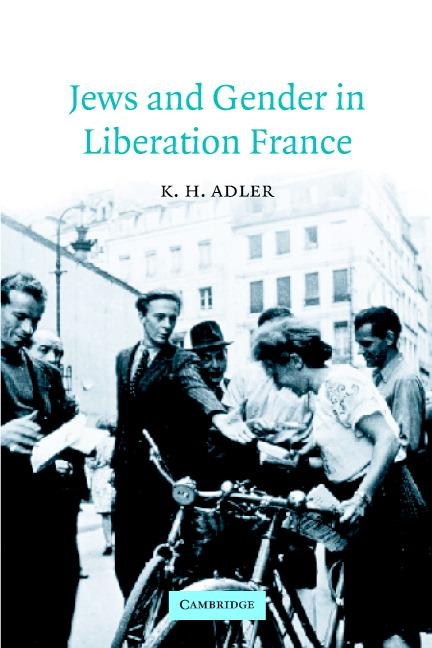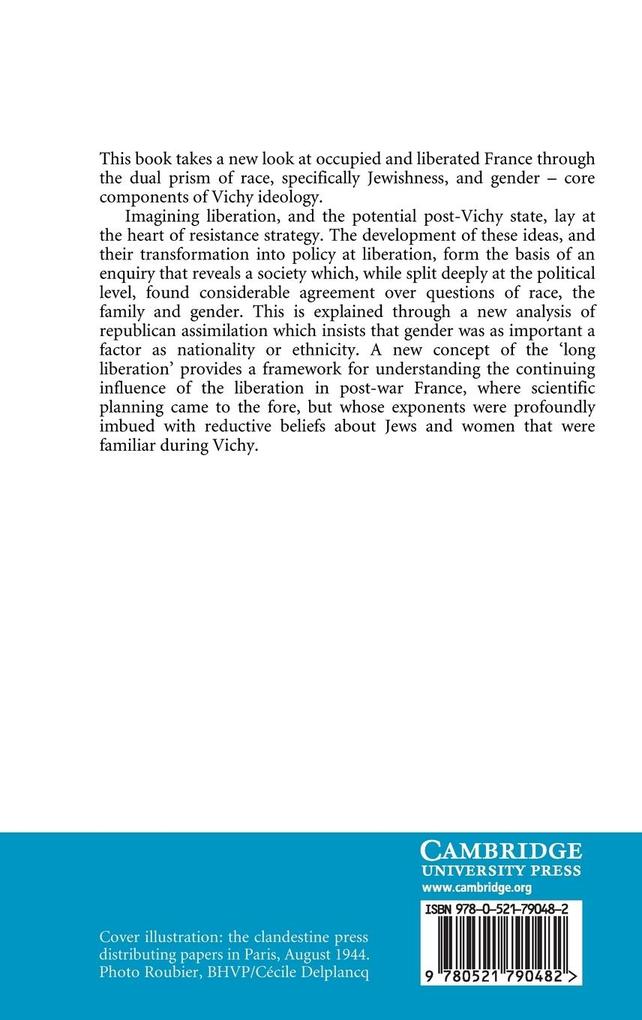This book takes a new look at occupied and liberated France through the dual prism of race, specifically Jewishness, and gender - core components of Vichy ideology. The imagining of liberation and the potential post-Vichy state, lay at the heart of resistance strategy. Their transformation into policy at liberation forms the basis of an enquiry that reveals a society which, while split deeply at the political level, found considerable agreement over questions of race, the family and gender. This is explained through a new analysis of republican assimilation which insists that gender was as important a factor as nationality or ethnicity. A new concept of the 'long liberation' provides a framework for understanding the continuing influence of the liberation in post-war France, where scientific planning came to the fore, but whose exponents were profoundly imbued with reductive beliefs about Jews and women that were familiar during Vichy.
Inhaltsverzeichnis
List of illustrations; Abbreviations; Acknowledgements; 1. Introduction: the long liberation; 2. Narrating liberation; 3. Anticipating liberation: the gendered nation in print; 4. Limiting liberation: 'the French for France'; 5. Controlling liberation: Georges Mauco and a population fit for France; 6. Liberation in place: Jewish women in the city; 7. Conclusion; Notes; Bibliography; Index.











